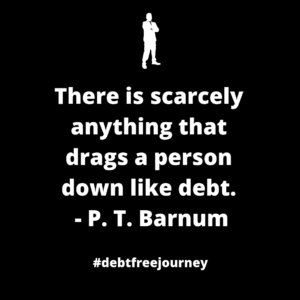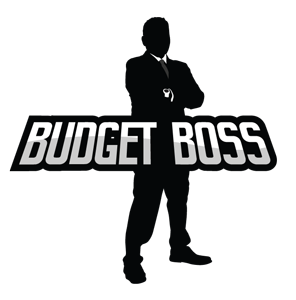Thursday, September 6, 2018
10 Ways to Keep Your Credit Score on Point
Credit scores are a hazy mystery to most people. The truth is, you never really know what causes yours to get up and down sometimes. What we do know is there are certain things you can do to make your score better or maintain the good status you have. Sadly, you will need solid credit to get most things in life such as a home or car. You will also need it to take advantage of better rates for these items as well. Achieving and maintaining good credit is not only good for this reason but the practices you keep while doing it pretty much mean you aren’t being a bonehead with your money. While I never promote going into debt, I do realize a good credit score can be useful. Today, I am going to give you my 10 Ten Tips of Keeping a Good Credit Score. This is especially useful for young people who often fall victim to credit mistakes.
1) Pay bills on time
Seems simple but as we all know, sometimes life gets in the way. Paying your bills on time is essential to keeping a good credit score. Lenders want to know that they can count on you making your payments every month especially since it is their money on the line. If you are forgetful when it comes to paying bills you need to set a reminder, so you don’t miss a payment. Even better, you can automate the process with most payments and the money will come right out of your account. I am personally not a fan of that, but I also never miss a payment. Around the 25th of every month is my bill week where everything comes due. I always make sure I have enough money in my accounts to cover the end of the month’s bills. Find whatever system works for you and make it happen.
2) Make arrangements/deals
As I mentioned, sometimes life happens, and you cannot afford your bill at the end of the month. It is essential that you don’t ignore it and instead talk to your creditors. Most companies are willing to accept a smaller payment in exchange for them keeping you in good standing. Take some time to make a payment arrangement with them so they do not ding your credit score because you went ghost. Also, make sure you find any long-lost money owing that you went rogue on. Things like old gym memberships or parking tickets can come back to bite you in the butt. Call those people up and make a deal. They will often accept less money than you owe because they will be happy to get anything from an account they have written off.
Are We Addicted to Debt? – Budget Boss
3) Budget and manage your money
My main man Chris Hogan of the Dave Ramsey family always says, “Manage your money or it will manage you!” It’s true. The site is called Budget Boss for a reason. You don’t like to budget, that’s fine. Call it whatever you want, but you must manage your money properly. Keeping track of inflows and outflows is essential. Making sure you spend less than you make is supremely essential. This is not rocket science and yet it has become the basis of our indebted society. Use a piece of paper, use a spreadsheet, use envelopes, use jars, do whatever you have to do. The honest truth is that if you are broke, you simply spend too much money. Proper money management will fix almost all your problems and lead to better credit. That’s a fact.

4) Think before you buy
I am extremely vigilant with purchases. I prolong the buying decision so long that I often forget I why I wanted the thing, to begin with. Being broke on a budget teaches you the value of a dollar. Truly understanding debt will make you wary of any purchase put on plastic. A simple way to understand what you should and shouldn’t buy is the want versus need debate. You should never go into debt for something you want. If you racked up a credit card because you couldn’t afford food, c’est la vie. If you racked it up because you want new shoes, you’re a dumbass. What you have in terms of debt affects your score so keep that level as low as possible. There will be things you need to finance in life, like a home. Don’t have a cheeseburger be one of them.
5) Avoid new debts
When you have debts, taking on new debts is troublesome for your credit score. We all have a cap on what is manageable, and your credit score takes this into account. Paying your bills on time is only one factor so not having too much on your plate is key. When you have little to no debt, be selective with what you take on. Make sure it serves a purpose and is not something you can’t just simply buy with cash. I look at debt this way: It should either serve a productive purpose or a purpose of utility. A productive purpose would be the acquisition of a home or something else that generates income or equity. A purpose of utility is one where having the debt is less burdensome than the alternative, ie: depleting your savings to get something you need. The emotional and physical security of the emergency fund is more important than the negative effects of interest payments. Either way, any added debt should be worked into your budget comfortably.
6) Pay off any owing debt
You will see a drastic jump in credit score once you pay off previous debts. Old debts can linger and all they do is grow if you don’t pay attention to them. Getting back in good standing will help your credit score immensely but also leave you with peace of mind. Be extra diligent with items that you may have forgotten about like library fees or old cable bills. You might not think they exist, but they are definitely there. Order your credit report or sign up at sites like Credit Karma to see what may be holding you back from a good score.
5 Reasons Why Credit Card Companies Target Young People – Budget Boss
7) Careful with new applications
Too many new credit applications can ding your credit score. Every time you apply for credit, your score gets hit. This includes when you apply for credit cards, department store financing, some cable or cell phone companies and even renting a new place. You should keep these applications to a minimum as too many will hurt your score.

8) Build solid savings
Having savings means that you will not need to use credit for the daily needs of life. This means that you are less likely to carry a balance from month to month which will also help your credit score. Having savings and protecting them is a lifestyle that is good overall, especially with credit. By taking the time and care to build savings you are laying the foundation for healthy financial practices including building and maintaining solid credit.
9) Ask for help if you need it
I remember when I decided enough was enough and I had to fix the mess I put myself in. I walked into my bank and asked what I needed to do to get my credit in order. Now although the man I saw that day was not that helpful, the act of asking for help was. We all get into tricky situations and sometimes we get in over our head. The world of credit and debt can be confusing so never feel like you are all alone. There are many agencies and individuals like myself who are more than happy to lend a tip or two to navigate through your financial hardships. Admitting you need help is not admitting defeat, it is merely using the resources around you to better your position. We often get trapped in our own mind and cannot see the forest for the trees. A second set of eyes will often lead to a perspective that you never considered.
12 of the Most Effective Ways to Get Out of Debt – My Money Coach
10) Make more money and get creative
People often ask me why I work so much. My main reason is that I have a certain standard of living that I like to maintain. This includes the place I live, the things I enjoy and most importantly the money I save. Making more money will improve your credit for many reasons. Used correctly it will loosen your reliance on credit, help you build adequate savings and give you the peace of mind that everything is alright. Use your creativity to make more money. Grab a second job, sell some stuff you don’t need or ask for a raise. Also remember that spending less money is essentially saving more money, which helps your credit.
With proper money management having good credit will be a no-brainer. We all know what we should be doing. The only issue is that sometimes we don’t do it. Hopefully, you now have the right information to limits the mistakes and enhance the successes within your financial foundation.
“There is scarcely anything that drags a person down like debt.” – P. T. Barnum

Email – joe@budgetboss.ca
Follow Budget Boss on – Facebook LinkedIn Twitter Instagram Pinterest Quora

